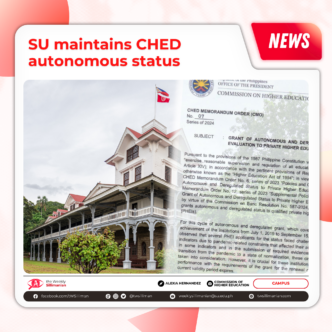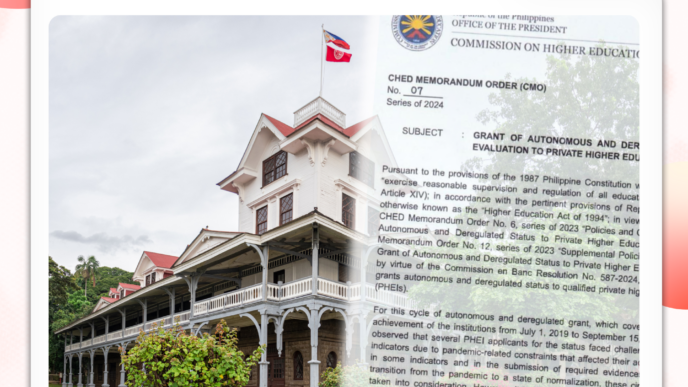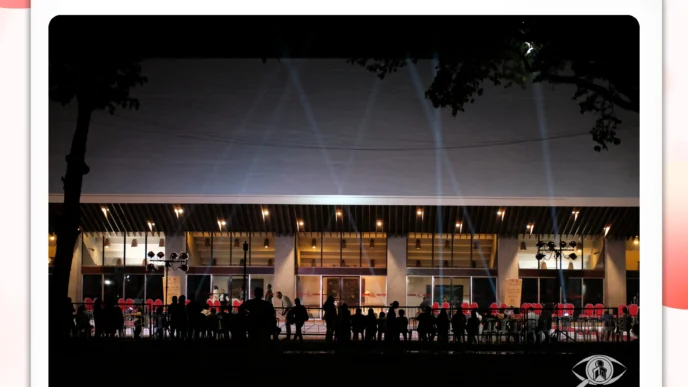By Lysander Tiu
Psychiatrist Dr. Carl Gerard Yap tipped first-year students with practical tools to help them maintain a balanced college life during the Silliman University (SU) Mental Health Caravan last Oct. 8.
Themed “Building a Mental Health Toolkit,” Yap gave some intra- and interpersonal scenarios that students may encounter in college and advised how to proactively deal with them.
He introduced five tools such as communication, problem-solving, the SPIRE checking method, behavioral activation, and mindfulness meditation.
According to Yap, many freshmen experience stress and problems as they struggle with expressing their needs.
To cope with this, he stressed the importance of “needs communication” which includes identifying the problem, observations, mentioning thoughts, sharing emotions, and expressing needs.
“Not every request works perfectly the first time, but the important thing is expressing the need clearly. From here, you can find compromises or seek support,” Yap said.
He encouraged students to choose and weigh the pros and consequences of options, and evaluate their results when solving problems.
Yap also emphasized that no solution is “perfect” and every choice has drawbacks, but the trick is to “choose one where the cons are manageable for you.”
“Problem-solving means experimenting, learning, and adapting. By following these steps, even overwhelming challenges can become manageable,” he added.
For students struggling to balance their life, Yap suggested the SPIRE checking method, composing the spiritual, physical, intellectual, relational, and emotional well-being.
The SPIRE checking method represents the five dimensions of a fulfilled life, based on Dr. Tal Ben-Shahar’s Model of Well-being, Yap explained.
Moreover, Yap proposed “behavioral activation” for students facing procrastination and lacking motivation in academic works.
According to him, behavioral activation is a form of short-term outpatient therapy that engages individuals in rewarding activities of their own choosing.
He detailed this method which includes meeting avoidance by doing something as an experiment, reinforcing progress, and listing things down as visual proof for momentum.
“In each step, we don’t wait for motivation, we act first and motivation follows. This is the same principle that I use when I work with patients who are depressed,” Yap said.
During his talk, Yap also conducted a five-minute mindfulness meditation, a mental workout he practiced during his college years and psychiatry training.
“It’s training the mind to notice what’s happening right now instead of being pulled by thoughts, stress, and emotions. Mindfulness is not just a threat, but it’s a skill that research shows can be wired into the brain,” he explained.
A psychiatrist for over 6 years, Yap completed his residency training in psychiatry at the National Center for Mental Health and worked in different private and public health institutions.
The lecture was held under the Mind Matters Movement, a mental health awareness project led annually by the SU Guidance and Testing Division in partnership with the SU Peer Advocacy Facilitators.












